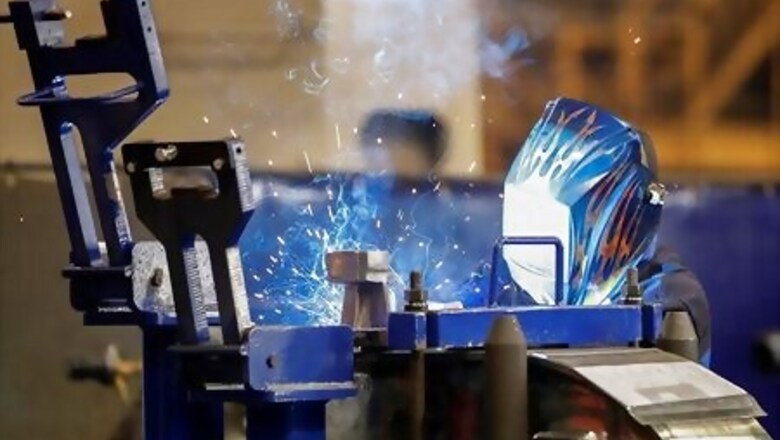
views
WASHINGTON: U.S. President Donald Trump’s administration took new steps to curb steel imports from Brazil and Mexico on Monday, boosting protections for battered U.S. steelmakers and jobs in the election battleground states of Pennsylvania, Ohio and Michigan.
The U.S. Trade Representative’s office said it was reducing Brazil’s remaining 2020 quota for semi-finished steel imports into the United States to 60,000 metric tons from 350,000 tons “in light of recent deterioration in market conditions brought on by the COVID-19 pandemic affecting domestic steel producers.”
Brazil agreed to the quotas in 2018 in exchange for an exemption from Trump’s 25% “Section 232” national security tariffs on steel imports.
USTR said it will maintain existing quotas for other Brazilian-made steel products and will consult with Brazil about the country’s 2021 quota for semi-finished steel in December, “by which time we hope market conditions will have improved.”
Mexico also agreed in consultations with USTR to establish a strict monitoring regime to address surges in steel pipe, mechanical steel tubing and semi-finished steel exports to the United States.
USTR gave no details on how the monitoring regime would work, but said the arrangement will also maintain Mexico’s exemption from Section 232 steel duties.
According to an official Mexican government decree announcing the deal, the export monitoring regime is aimed at preventing the transshipment of steel pipe, tubing and semi-finished steel from China and other countries through Mexico to the United States. It said Mexican exporters would need to obtain a government permit in advance to export these products.
Mexico’s ministry of economy said separately on Monday that export monitoring for these products will continue until June 1, 2021.
STEEL SLUMP
The agreements to boost protection for U.S. steelmakers come as the U.S. presidential election campaign heats up and Trump seeks to tout his use of tariffs to boost traditional manufacturing jobs.
But the steel industry, battered by imports for decades, has faced a new round of layoffs and idled mills this year as the pandemic shuttered auto plants and other steel-consuming industries.
U.S. Midwest hot-rolled steel futures for September delivery were bid at $504 a ton on Monday after hitting a four-year low of $447 last week. Prices had reached as high as $942 in May 2018, a few weeks after Trump first imposed the Section 232 tariffs on steel imports.
Kevin Dempsey, interim president of the American Iron and Steel Institute, said steelmakers appreciated the actions to curb imports as weak demand caused a 20% drop in raw steel output. “These difficult conditions make the industry even more vulnerable to surges in imports.”
Canacero, the Mexican steel trade group, said it was an “extraordinary result” that the negotiations prevented the United States from reimposing Section 232 tariffs on Mexican steel.
(Additional reporting by Sharay Angulo in Mexico City and Andrea Shalal in Washington; Editing by Franklin Paul and Marguerita Choy)
Disclaimer: This post has been auto-published from an agency feed without any modifications to the text and has not been reviewed by an editor


















Comments
0 comment